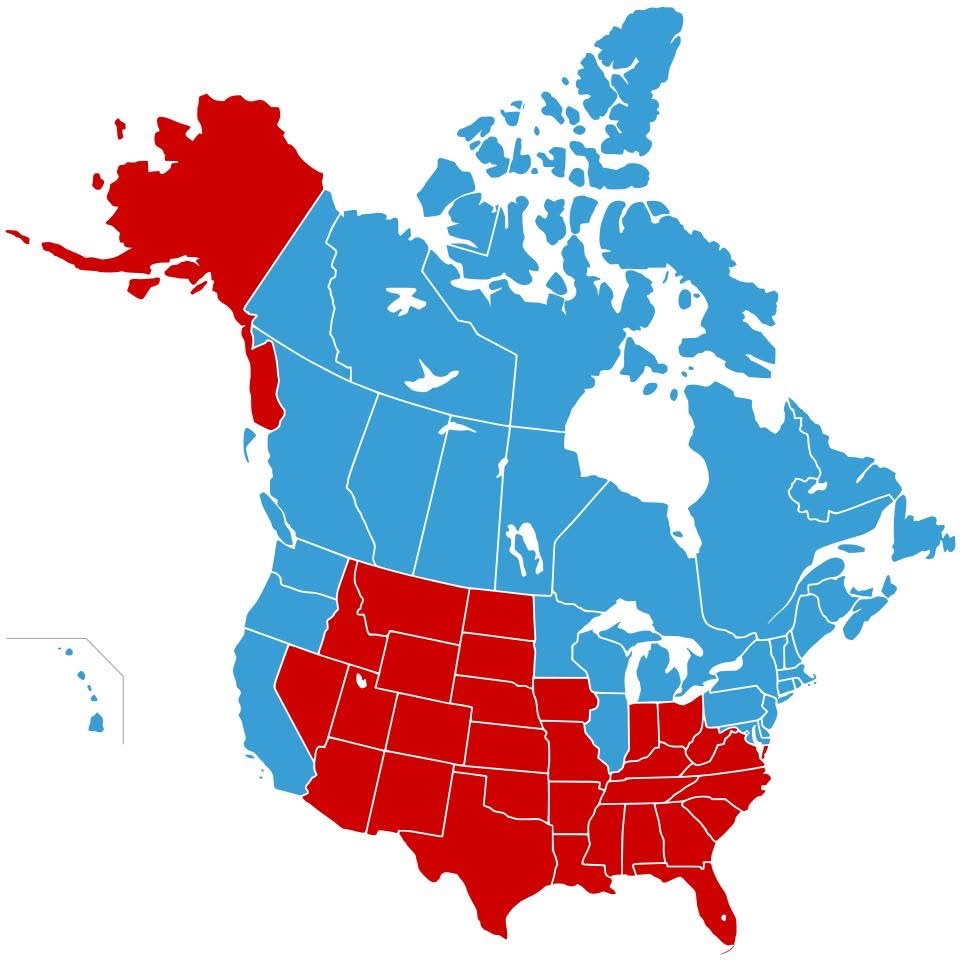A lot of us have been talking about how the divisiveness and extremism that have been brewing in the world in the last few decades will lead us to very bad places. The seeds of this division have been methodically sown for decades but social media has been the magic bullet that has kicked it all into overdrive.
We live in very extreme times but this is much more than just an organic, internal differing of opinion amongst American citizens and political parties. A portion of the situation we now find ourselves in is being driven by domestic mainstream media for increased ratings and a rash of negative political ad campaigns for votes but there’s more to the story.
Plenty of evidence points to the fact the chaos is being amplified by a myriad of bad actors using armies of state-sponsored social media profiles that seem hellbent on splitting America and the rest of the western world in two. It’s a plan as old as history—divide and conquer.
Recently, I came across an essay from journalist, Chris Armitage entitled, It’s Time for Americans to Start Talking About “Soft Secession”*.
*If you don’t have the time to devote to reading the entire article (linked above) I’ve asked Grok to summarize the highlights of the essay for you below:
In 2025, blue state leaders are orchestrating a strategic response to perceived federal overreach under a Trump administration, engaging in what some privately term "soft secession." This approach involves Democratic governors and attorneys general holding encrypted strategy sessions and near-daily Zoom calls to prepare legal challenges and state-level policies that counteract federal mandates. States like Oregon are stockpiling abortion medication in secret, Illinois is exploring digital sovereignty to protect privacy, and California is leveraging its $76 billion reserve to safeguard progressive policies. Governors such as Gavin Newsom and J.B. Pritzker are leading efforts, with initiatives like Governors Safeguarding Democracy and special legislative sessions to fortify state autonomy. This resistance, described as uncooperative federalism, relies on creating parallel systems—such as state voting rights acts and climate agreements—that render federal authority ineffective within their borders, drawing on legal precedents like the anti-commandeering doctrine from Printz v. United States (1997).
The economic leverage of blue states fuels this movement, as they contribute significantly more to federal coffers than they receive—Massachusetts, New York, and New Jersey, for instance, send billions more to Washington than they get back, while red states often receive more than they contribute. This disparity empowers blue states to explore independent financial systems, such as state banking modeled on the profitable Bank of North Dakota, and to consider withholding cooperation with federal policies, like immigration enforcement. Historical examples, such as Northern states’ personal liberty laws undermining the Fugitive Slave Act or widespread cannabis legalization despite federal prohibition, demonstrate the effectiveness of state non-compliance. Blue states are also advancing proactive measures, like Colorado’s gold-standard election security protocols and the National Popular Vote Interstate Compact, which has secured 209 electoral votes, signaling a shift toward self-governance that bypasses federal gridlock.

While blue state leaders avoid the term “soft secession” publicly, preferring euphemisms like “resistance” or “federalism,” their actions suggest a deeper fracture in American governance. States are preparing for extreme scenarios, with tabletop exercises simulating federal troop deployments and discussions about denying federal agents access to state databases, highways, or even airspace for deportation flights. Legal “brief banks” are ready to challenge executive orders swiftly, as seen in California’s response to Trump’s birthright citizenship order. Meanwhile, red states like Texas have long employed similar tactics, such as Operation Lone Star’s border control measures, highlighting a broader trend of states asserting sovereignty. As blue states build independent systems to protect abortion rights, labor, and individual freedoms, and red states pursue opposing agendas, the federal government risks becoming a hollow structure, with states on both sides increasingly governing without federal permission, raising questions about the future of national unity.
The Case For Compromise
After I read this essay I asked myself—What would be the shelf-life of a marriage between two individuals where the expectation is to agree on everything? I would predict a lightning quick annulment.
For the better part of the last century, for better or worse, the country and much of the world ran on compromise. The sole purpose of the government was to work to reach a consensus that made both sides happy. Political ideologies between the two US political parties once shared much more common ground. There were disagreements, yes, but at the end of the day politicians realized they were all on the same team. Expectations were different as well. People realized that part of compromise means you don’t always get everything you want.
Now imagine a country of 340 million+ who have been conditioned to believe every citizen of the country needs to agree on pretty much everything, across the board. If not, they’re stupid, brain-washed, wrong, and in some cases even the enemy. This is the level of expectations many people have and the state of the world we currently find ourselves in.
Many people have learned to base their decisions purely on emotion and emotions are transitory. Political ideologies also shift. Watching decades-old speeches from Democratic politicians like Chuck Schumer and Hillary Clinton made me realize just how much of the modern day Republican party's playbook the 1990s Democrats actually agreed with, things like—welfare reform, border control, tough-on-crime policies, and fiscal responsibility.
Whether it's labeled Cold Civil War or the more politically correct, Soft Secession. it would mean the unraveling of The United States as we know it. This is a thought almost too massive and strange to even wrap my head around. What a weird new world we’re stepping into, One that could lead to a bifurcation of the entire Western world. The only thing that keeps echoing through my head is, What Happened to Compromise?
Is there time to course-correct? Or is soft secession our inevitable future? Only time will tell.
All for now. Thanks for reading.
